She-Hulk Ending Explained: Whose Show Is It, Anyway?
Posted by admin on
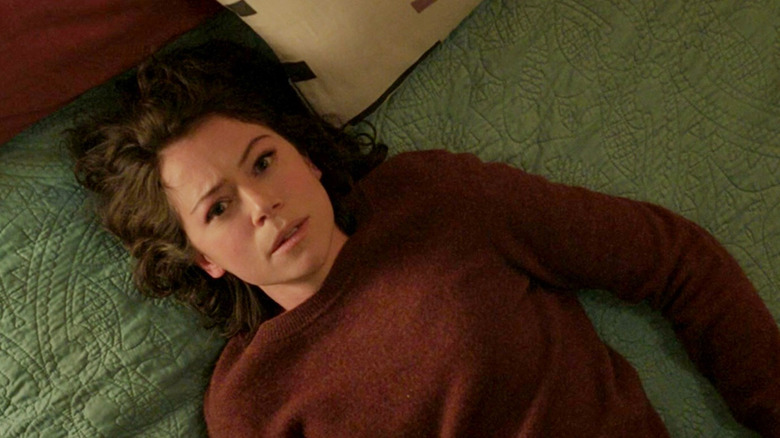
This post contains spoilers for the latest episode of "She-Hulk: Attorney At Law."
She-Hulk, we hardly knew ya! Nine weeks have flown by in a flash, and though it feels like we've only just started to gel with the newest Marvel hero, our time together is already coming to a close ... at least for now, anyway. But that doesn't mean the journey wasn't memorable. "She-Hulk: Attorney at Law" may have started off a bit rocky — its low-stakes, reluctant hero storyline didn't appeal to everyone — but to this writer at least, the series got better with time. As "She-Hulk" came closer to its finale though, a different issue arose: would the series stick the landing, or at least manage to avoid the trappings of the dreaded Marvel finale?
For so many projects in the Marvel Cinematic Universe, the finale (or, in the case of the films, the third act) has come to be synonymous with messy, CGI-laden spectacle. Intricate character work and emotional stakes are often trampled by shoehorned battle sequences — and it's frustrating, sure, but that's the Marvel formula for you. Given that "She-Hulk" ultimately takes its cues from that formula, there were doubts that the series would be able to avoid a lazy ending, much less comment on Marvel's history with them. But if the events of the past eight weeks have been any indication, "She-Hulk" marches to the beat of its own drum. The series has been winking towards its meta inclinations here and there, and to mixed effect. But when saddled with an explosive (and, you guessed it: predictable) final battle, our titular hero uses those unorthodox fourth wall-breaking powers to take the story into her own hands.
The Savage She-Hulk
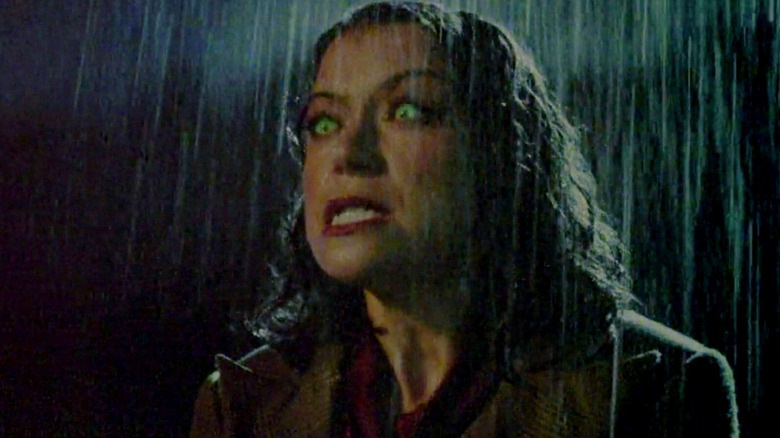
When last we saw She-Hulk, she was facing big consequences after hulking out on Intelligencia, the evil incel platform that crashed her big night at the Southern California Law Awards and leaked her sex tape to the world. In the finale, we find Jen locked up in the Damage Control Supermax Prison ... in Emil Blonsky's (Tim Roth) old cell, no less. There, she's visited by her co-workers, and told that even though she's just experienced every woman's worst nightmare, her priority is not pressing charges against Intelligencia — or even trying to identify their mysterious leader, HulkKing — but dealing with the fallout of her outburst.
While Jen loses her job and is forced to give up her apartment, she and Nikki (Ginger Gonzaga) are more focused on taking down Intelligencia: it's the only way anything can go back to normal. Jen heads off to Blonsky's retreat to get some much-needed guidance, and Nikki infiltrates an Intelligencia party with the help of Pug (Josh Segarra). There, she discovers that Todd (Jon Bass) has been behind the organization all along.
Yes, Todd! The dude that uses Wakandan war relics to spice up his dating profile! All this time, he's been the one with designs on She-Hulk's blood. He intends to inject himself with a synthesized Hulk formula in order to become a Hulk himself — not the most original plan, but at least he's not trying to become the next Black Panther or something.
Is This Working For You?
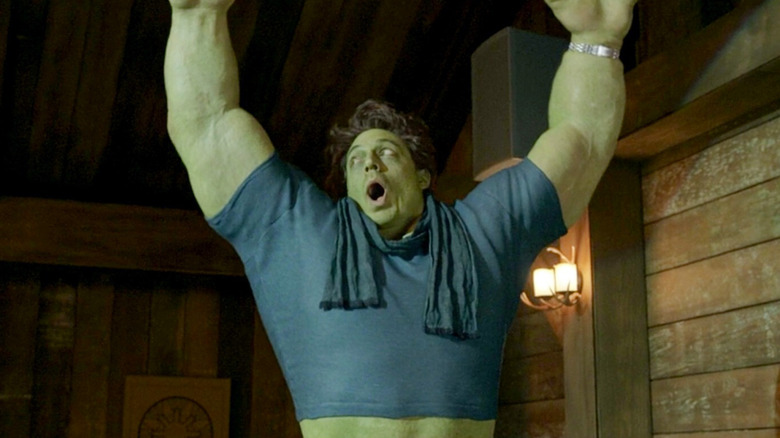
To add insult to injury, Todd's hosting his troll gathering at Blonsky's retreat — and Blonsky himself appears (in Abomination form!) to give a motivational speech. It doesn't seem as though Blonsky really understands what Intelligencia is, let alone what their organization stands for, but Jen is still understandably hurt. He is violating his parole, after all. But Blonsky's legal repercussions will have to wait: not only do they have a new Hulk on their hands, but an angry mob of man-children too. And if that wasn't enough, "She-Hulk" brings two supporting players back into the fray with the return of Titania (Jameela Jamil) and even the Incredible Hulk (Mark Ruffalo).
How either of them knew to find Jen at Blonsky's isn't really explained — and in any other Marvel project, such a plot hole would undoubtedly be glossed over in that final act. But again, this isn't just any Marvel project. Jen, at least, has the awareness to question the nature of this sloppy reality, and whether it's in the best interest of the story at hand. In a brilliant move lifted from classic "She-Hulk" comics, Jen exits the story entirely, bursting out of the "She-Hulk" title card in the Disney+ main menu and crashing right into the "Marvel: Assembled" docuseries.
The Plot Thickens
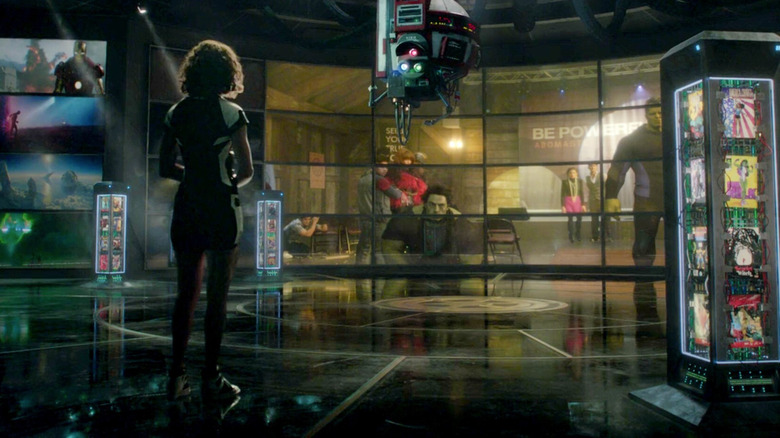
In the "real world," Jen makes quick work of locating the "She-Hulk" writers, who explain the need to bring her story in line with that of the Marvel formula. It's the story that "KEVIN" wants — not flesh-and-blood Marvel boss Kevin Feige, but a JARVIS-type A.I. that builds out the MCU with the help of an entertainment algorithm. Jen's confrontation with KEVIN is itself a jab at years' worth of clichéd storytelling, and while she never fully goes for the jugular, it's still the series' boldest move yet. Before Jen intervened, "She-Hulk" was headed straight for a cookie-cutter slugfest and an obligatory MCU tie-in. And sure, that would have appeased a good chunk of the fanbase — but what about the work Jen had been doing to reconcile the two halves of herself? What about the real story, and the very-real stakes at hand?
It's here that "She-Hulk" subverts one of the franchise's biggest foibles, and it aligns perfectly with her new MO as a Hulk. As she later tells KEVIN, this is what Hulks are made to do. "We smash things. Bruce smashes buildings and I smash fourth walls and bad endings ... and sometimes Matt Murdock." So true, queen!
With KEVIN effectively convinced, Jen erases the blood subplot, and saves Bruce's reintroduction for later. But before she can make too many demands, KEVIN sends her back to resolve her ending herself. Instead of destroying Todd with brute Hulk force, she calmly and curtly announces her decision to pursue legal action against him. Charlie Cox's Daredevil also makes an appearance — and in broad daylight too, which feels so out of place — and while he's too late to help fight the bad guys, he's not entirely unwelcome (the girl has needs, people!). Blonsky also gets sent back to prison for violating his parole, and he seems awfully chill about it. Too chill, perhaps ... but more on that later.
What Worked, And What Didn't
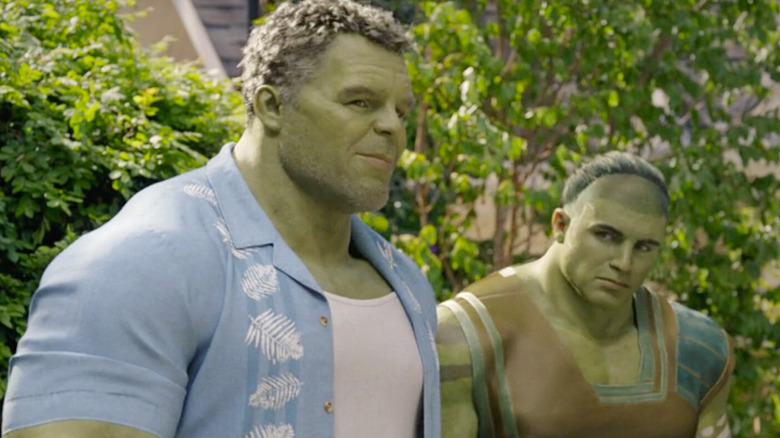
More of the same: Jen does effectively get the ending she deserves, but the MCU algorithm still manages to get a few licks in. Bruce returns to introduce his son at a family gathering that feels strongly of a "Fast & Furious" denouement. And for the first time in a few episodes, we get a little mid-credits tease with Blonsky and Wong (Benedict Wong). All in all, you can't really fault Marvel for reverting back to the tried and true. They're in the business of interconnected storytelling, after all, and with Jen's adventure effectively resolved, there's room for at least one reference to the future of the MCU.
The HulkKing in the room: As much as I loved Jen's meta meddling, did that completely do away with Todd's sudden Hulk powers? It's true that Todd himself — or rather the toxic culture he promotes — is the real villain of "She-Hulk," but the deal with Jen's blood was an issue throughout the season. It feels weird to erase that conflict so easily, especially knowing that it was clearly building to something.
The law offices of Jennifer Walters: "She-Hulk" didn't spend much time on Jen's future as a lawyer, but with her career with GLK&H effectively over, could we see her setting out on her own? Matt spoke a bit about his own solo practice back in Hell's Kitchen, and he's already inspired Jen to take up her cross as a reluctant superhero. Maybe she'll be opening up her own law office, too. This would be a great way of maintaining the dynamic between Jen, Nikki, Pug and even, maybe, Mallory Book (Renée Elise Goldsberry), since they're not exactly co-workers anymore.
And speaking of Mallory: What is her deal? Perhaps it's just the Marvel troll in me talking, but it seemed like "She-Hulk" was even setting up something interesting with her. Her locked-down personal life — she's got a husband, and a kid! — speak to larger involvement within the MCU ... right? Maybe I'm just a little mad that the series didn't utilize Goldsberry to the best of her ability, or maybe I'm still fighting the urge to make a connection where none really exists, but I do hope this isn't the last we see of such an interesting character.
The first season of "She-Hulk: Attorney at Law" is now streaming on Disney+.
Read this next: 9 Filmmakers Who Should Be Given Free Rein In The MCU
The post She-Hulk Ending Explained: Whose Show Is It, Anyway? appeared first on /Film.
